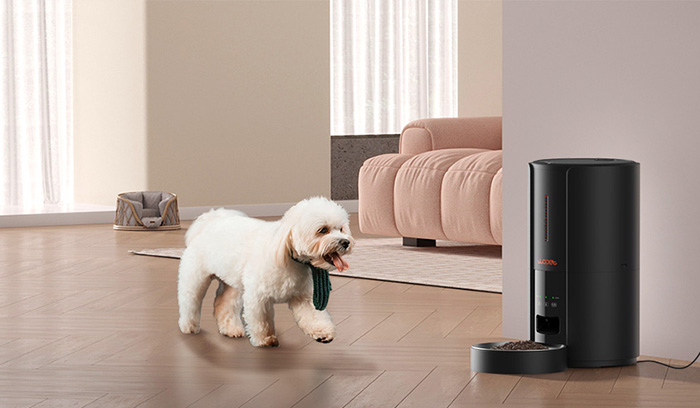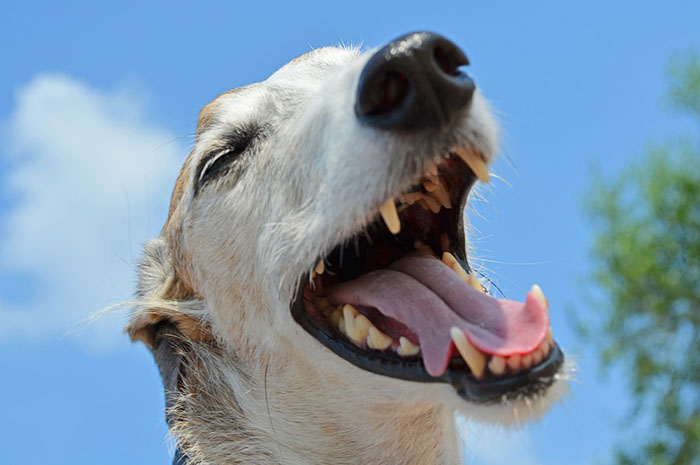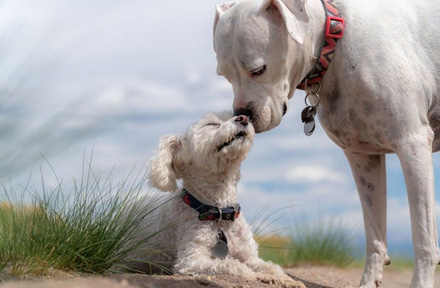-
Home
-
Shop
New -
Explore
-
Support
-
Track Order
Jan 24, 2024
Author:Lisa Martinez
As our furry friends age, they require special attention and care to ensure they enjoy their golden years to the fullest. Just like humans, senior dogs have unique needs that demand a little extra love and attention. In this comprehensive guide, we'll delve into how to care for a senior dog, offering tips and advice to keep your loyal companion happy, healthy, and comfortable in their later years. Whether you've had your senior dog for years or have recently adopted one, this article will provide you with valuable insights into providing the best care for your aging canine friend.
One of the most crucial aspects of caring for a senior dog is regular veterinary check-ups. Just like humans, dogs can develop age-related health issues, and early detection is key to effective treatment. Your veterinarian can recommend a schedule for check-ups based on your dog's age and overall health. These visits should include a thorough physical examination, dental check, and discussions about diet, exercise, and any specific concerns you may have.

Senior dogs often have different nutritional requirements than younger ones. It's essential to provide them with a balanced diet that caters to their aging bodies. Look for dog food specifically formulated for seniors, as it typically contains lower calories and higher fiber to help manage weight. Consider consulting your veterinarian for recommendations on the best diet for your senior dog, as individual needs can vary based on factors like breed, size, and health conditions.
As pets age, they often encounter a variety of dietary challenges that can impact their health and wellbeing. Common issues include a loss of appetite, dental problems, and digestive issues. Addressing these concerns through diet and management can significantly enhance an older pet's quality of life.
Feeding management plays a crucial role in addressing these dietary issues. The use of an automatic pet feeder can offer several advantages. It allows for the distribution of smaller, more frequent meals, which can be easier for senior pets to digest and can stimulate appetite throughout the day. Moreover, automatic feeders can help ensure that pets with decreased appetite still receive the necessary nutrients at the correct times, supporting their overall health and wellbeing.

While senior dogs may not have the same energy levels as they did in their youth, they still require regular exercise to maintain their physical and mental health. Tailor your dog's exercise routine to their abilities. Shorter walks, gentle playtime, and low-impact activities like swimming can help keep them fit without straining their joints. Be mindful of the weather, and avoid extreme temperatures that may be uncomfortable for your senior companion.

Joint issues, such as arthritis, are common in senior dogs. To alleviate discomfort and maintain mobility, consider adding joint supplements to their diet, as recommended by your vet. Additionally, provide them with a comfortable and supportive bed to rest on. If needed, ramps or stairs can help them access higher surfaces with ease, reducing the strain on their joints.
Oral health is often overlooked but is crucial for senior dogs. Dental problems can lead to eating, and systemic health issues. Regularly brush your dog's teeth and provide dental chews or toys designed to reduce plaque buildup. If necessary, consult your veterinarian for professional dental care, which may include cleanings or extractions.

Keeping your senior dog mentally stimulated is so crucial. Engage their minds with puzzle toys, treat-dispensing toys, or gentle training exercises. This mental stimulation helps prevent cognitive decline and keeps them and happy.
Make your home more senior-dog friendly by removing obstacles and hazards. Ensure that slippery floors have rugs or non-slip mats, and keep walkways clear. Provide easy access to water and food bowls, and consider raising them slightly to prevent strain on your dog's neck and back. Additionally, secure cabinets or areas where toxic substances are stored to prevent accidental poisoning.
As dogs age, their vision and hearing may deteriorate. Be patient with your senior dog and help them adapt to these changes. Avoid sudden movements that may startle them and consider using hand signals for commands. Keep them in a familiar environment to minimize confusion, and provide well-lit spaces to aid their vision.

Caring for a senior dog can be a rewarding experience, and with the right approach, you can ensure that your furry friend enjoys their later years to the fullest. Regular vet check-ups, tailored nutrition, proper exercise, joint health care, dental attention, mental stimulation, a senior-friendly home, and accommodation for vision and hearing changes are essential components of senior dog care. By following these tips and providing love and companionship, you can ensure your senior dog lives a happy, healthy, and fulfilling life by your side.
Popular Post

Why Does My Cat Cough After Drinking Water? 8 Potential Reasons
Mar 13, 2023

My Cat Only Eats A Little at A Time - What to Do?
Feb 27, 2023

What to Feed a Sick Dog With No Appetite? [2024 Guide]
May 16, 2023

Why Is My Dog Being Destructive All of A Sudden?
Feb 04, 2023

Do Puppies Miss Their Moms
Feb 11, 2023
Copyright © 2024 WOPET. All Rights Reserved.